CD Projekt Red North America: A Second Chance for Cyberpunk?

The announcement of CD Projekt Red North America, slated to helm the development of Orion, the Cyberpunk 2077 sequel, has sparked a mixture of excitement and trepidation. As a studio expansion, CDPR Boston studio promises a fresh start, but can it truly escape the shadow of Cyberpunk 2077's troubled past? The questions loom large: Will CDPR studio culture evolve, or will the same pressures and project mismanagement plague Orion? For PC gaming enthusiasts invested in the industry's inner workings, this expansion represents a pivotal moment, a chance for redemption or a repeat of past mistakes. This article delves into the complexities of this new venture, comparing it to other successful multi-studio models, and examining the community's hopes and fears for the future of Cyberpunk.
The cracked and glitching Cyberpunk 2077 logo represents the game's troubled launch and the challenges CD Projekt Red faces in rebuilding trust.
Will History Repeat Itself? Crunch and Mismanagement Concerns
The elephant in the room is undoubtedly Cyberpunk 2077's disastrous launch. The game, plagued by bugs, performance issues, and unmet promises, left a deep scar on CD Projekt Red's reputation. The core issue was game development crunch time. Reports of excessive overtime, unrealistic deadlines, and a toxic work environment painted a grim picture. Now, with CD Projekt Red North America leading Cyberpunk Orion development, the question arises: has CDPR truly learned from its mistakes?
Some point to CDPR's public commitment to a more humane work environment as evidence of change. They've spoken of a shift towards a more sustainable development cycle, emphasizing employee well-being and realistic project timelines. But, promises are cheap.
 A modern office building in Boston, representing the intended location of the new CD Projekt Red North America studio, symbolizes a fresh start for CD Projekt Red.
A modern office building in Boston, representing the intended location of the new CD Projekt Red North America studio, symbolizes a fresh start for CD Projekt Red.
Others are far more skeptical. On the r/cyberpunkgame subreddit, reactions to the announcement were mixed. One user wrote, "I'll believe it when I see it. They promised no more crunch for Cyberpunk, and look how that turned out." Another commented, "Hoping for the best, but preparing for the worst. CDPR has a lot to prove." On the official CD Projekt Red forums, similar sentiments echoed. The community, understandably, is wary.
A crucial factor will be the leadership and management style implemented at CD Projekt Red North America. Will they be empowered to make independent decisions, or will they be beholden to the same pressures and unrealistic expectations that plagued the Polish studio? The answer to this question will determine whether CDPR Boston studio can truly offer a fresh start. The challenge will be in creating a culture that prioritizes sustainable game development without sacrificing quality.
How will CDPR avoid crunch with Cyberpunk Orion development?
This is the million-dollar question. Here are a few strategies CDPR could implement:
- Realistic Timelines: Setting achievable deadlines and avoiding the pressure to rush the game to market.
- Transparent Communication: Openly communicating progress, challenges, and potential delays to both employees and the public.
- Empowered Teams: Giving teams autonomy and decision-making power.
- Adequate Staffing: Ensuring sufficient resources and personnel to meet project demands.
- Strong Project Management: Implementing robust project management practices to track progress, identify potential issues, and mitigate risks.
International Expansion: Learning from Rockstar?
CD Projekt Red isn't the first AAA game developer to expand internationally. Rockstar Games, with studios around the globe, offers a compelling comparison. Rockstar utilizes a collaborative model, where multiple studios contribute to shared projects. This approach allows them to distribute the workload, mitigate crunch, and leverage diverse talent pools.
Rockstar's success, however, is not solely attributable to its multi-studio structure. It also relies on strong leadership, clear communication, and a well-defined development pipeline. If CDPR expansion strategy hopes to achieve similar results, it must learn from both the successes and failures of other studios.
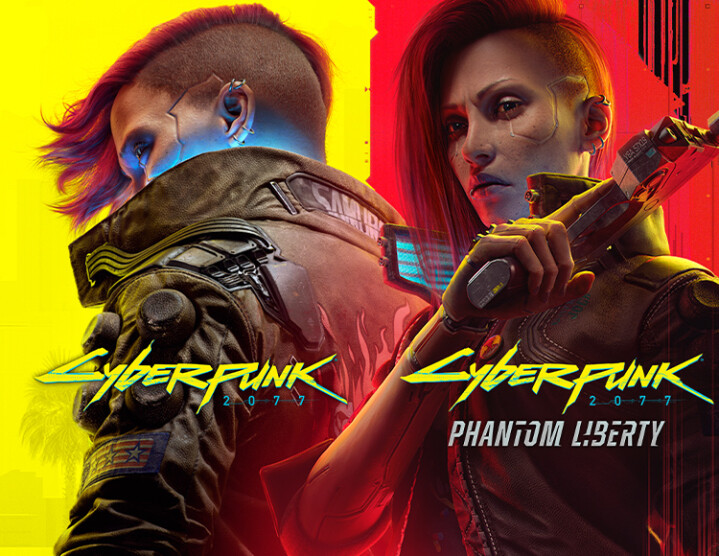 A map shows the geographic separation between CD Projekt Red's Warsaw headquarters and their new North American studio, highlighting the challenges and opportunities of international collaboration.
A map shows the geographic separation between CD Projekt Red's Warsaw headquarters and their new North American studio, highlighting the challenges and opportunities of international collaboration.
Comparing CDPR game development to other AAA studios reveals a spectrum of approaches. Some studios operate with a centralized model, while others embrace distributed development. The key is finding the structure that best suits the company's culture, project needs, and overall goals.
Is Project Orion a full Cyberpunk sequel?
While details are still scarce, CD Projekt Red has confirmed that Orion is indeed a full sequel to Cyberpunk 2077. This means players can expect a new story, new characters, and new gameplay mechanics, all set within the Cyberpunk universe.
Why is CD Projekt Red opening a studio in Boston?
Boston is a hub for game development talent, boasting a strong network of universities, studios, and industry professionals. Establishing a presence in Boston gives CD Projekt Red access to a diverse pool of skilled developers, artists, and designers. The city also offers a thriving cultural scene and a high quality of life, making it an attractive destination for potential employees.
Community Sentiment: Hope and Skepticism
As mentioned earlier, community sentiment surrounding CD Projekt Red North America is a mixed bag. While many fans are excited about the prospect of a Cyberpunk 2077 sequel, they remain cautious, given the first game's rocky launch.
"I really hope they can pull this off," wrote one user on IGN. "I loved the world of Cyberpunk, but the game was just too broken to enjoy." Another commented on PC Gamer, "This is their chance to redeem themselves. Let's hope they don't screw it up again."
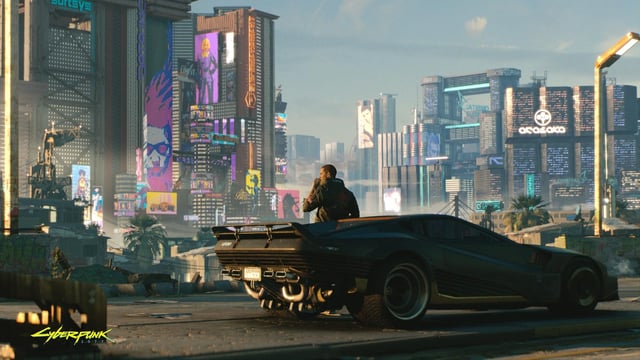 A screenshot of a discussion thread highlights the varying opinions of the Cyberpunk 2077 community, reflecting both excitement and skepticism about the new studio and the sequel.
A screenshot of a discussion thread highlights the varying opinions of the Cyberpunk 2077 community, reflecting both excitement and skepticism about the new studio and the sequel.
Cyberpunk 2077 community reaction is crucial to CD Projekt Red's future success. Regaining player trust will require transparency, communication, and, most importantly, a well-polished and enjoyable game. CD Projekt Red needs to show, not just tell, that they've learned from their past mistakes.
How can CD Projekt Red regain player trust with Project Orion?
Here are a few key strategies:
- Consistent Communication: Regularly updating the community on the game's development progress.
- Transparency: Being open and honest about challenges and potential delays.
- Community Involvement: Actively soliciting feedback and incorporating it into the development process.
- Delivering on Promises: Ensuring that the final product meets or exceeds expectations.
- Post-Launch Support: Providing ongoing support and updates to address any issues and improve the game's overall quality.
The Potential Impact on Developers and the Future of Cyberpunk
The establishment of CDPR Boston studio has the potential to significantly impact the lives of game developers in the region. It offers new job opportunities, the chance to work on a high-profile project, and the potential to contribute to the evolution of the Cyberpunk franchise.
However, the studio's success hinges on creating a positive and sustainable work environment. If CD Projekt Red can successfully address its past issues with crunch culture and project mismanagement, CD Projekt Red North America could become a model for ethical and sustainable game development.
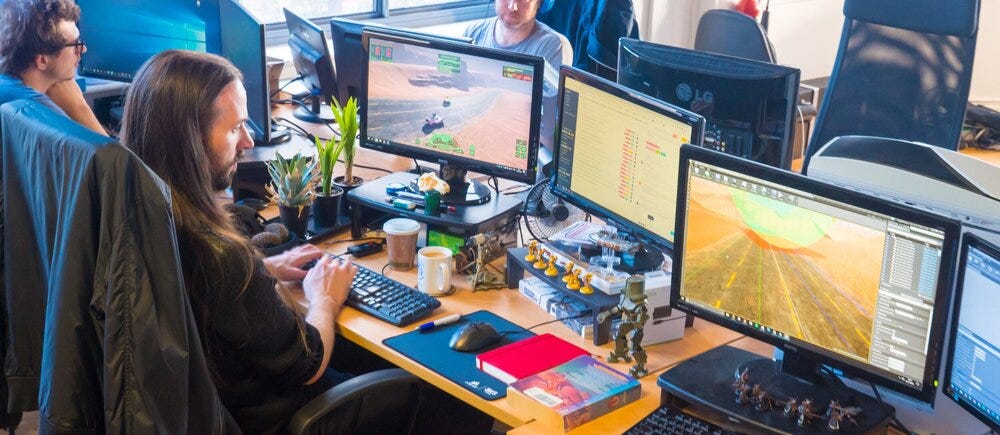 A collaborative game development team embodies the hope for a positive work environment and innovative game design at CD Projekt Red North America.
A collaborative game development team embodies the hope for a positive work environment and innovative game design at CD Projekt Red North America.
The future of Cyberpunk rests on the shoulders of CD Projekt Red North America. The studio has the opportunity to learn from the past, embrace new approaches, and deliver a game that lives up to the franchise's potential. But, success will require more than just talent and ambition; it will demand a commitment to ethical practices, sustainable development, and a genuine respect for the well-being of its employees.
Ethical game development CDPR Boston
Here are some key principles that CD Projekt Red North America should adopt to ensure ethical game development:
- Fair Compensation: Paying employees fairly and providing comprehensive benefits.
- Reasonable Work Hours: Avoiding excessive overtime and promoting a healthy work-life balance.
- Safe and Respectful Workplace: Creating a culture of inclusivity, respect, and psychological safety.
- Transparent Communication: Openly communicating with employees about project goals, timelines, and expectations.
- Employee Empowerment: Giving employees autonomy and decision-making power.
Conclusion: A Path to Redemption or Another Dead End?
The announcement of CD Projekt Red North America and Orion is a significant moment for both CD Projekt Red and the Cyberpunk franchise. This new studio represents a chance for redemption, a chance to learn from the past and build a brighter future. But, the path ahead is fraught with challenges. Overcoming the legacy of Cyberpunk 2077's troubled launch, building a sustainable work environment, and regaining player trust will require a concerted effort.
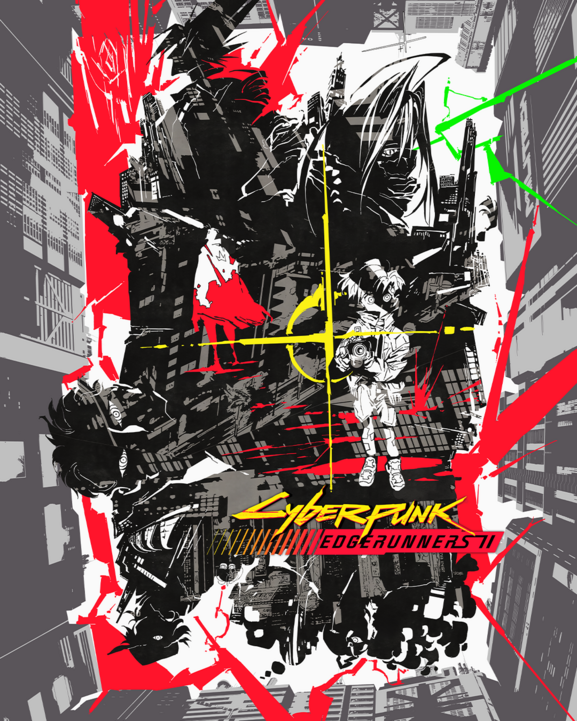 The split image of a Cyberpunk cityscape, one pristine and the other glitched, symbolizes the two possible futures for the Cyberpunk franchise under the leadership of CD Projekt Red North America.
The split image of a Cyberpunk cityscape, one pristine and the other glitched, symbolizes the two possible futures for the Cyberpunk franchise under the leadership of CD Projekt Red North America.
The industry, and the gaming community, will be watching closely. The success of CD Projekt Red North America will not only determine the future of Cyberpunk, but also serve as a case study for the potential of ethical and sustainable game development. The ball is now in CD Projekt Red's court.
Interested in joining a team dedicated to ethical game development? View Open Positions at CD Projekt Red North America and be part of the future of Cyberpunk.
 A game developer reviewing code emphasizes the technical skill and dedication required to create successful and engaging games.
A game developer reviewing code emphasizes the technical skill and dedication required to create successful and engaging games.
Where is CD Projekt Red North America located?
CD Projekt Red North America is located in Boston, Massachusetts, a vibrant hub for technology and game development.
What are CDPRs' plans for fixing the crunch issues of the past?
CD Projekt Red has publicly committed to reducing crunch and creating a more sustainable work environment. Their plans include setting more realistic deadlines, improving project management, and fostering a culture of open communication and employee empowerment. They are also reportedly investing in new tools and technologies to streamline the development process.
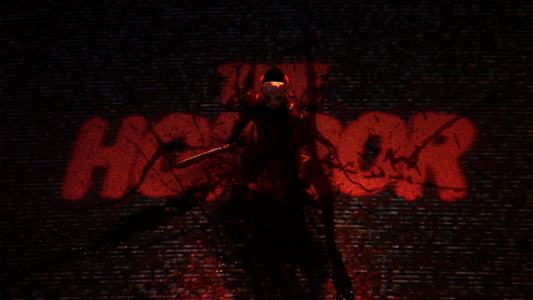 The iconic Boston skyline visually represents the location of CD Projekt Red North America and its potential integration into the city's thriving tech and gaming community.
The iconic Boston skyline visually represents the location of CD Projekt Red North America and its potential integration into the city's thriving tech and gaming community.
Is CD Projekt Red North America a new studio, or an expansion?
CD Projekt Red North America is technically a new studio, but it's also an expansion of CD Projekt Red's global presence. It's a separate entity with its own leadership and team, but it will work in collaboration with the Polish studio on the development of Orion and other future projects.
 A visual comparison highlights the contrast between a stressful, chaotic game development environment and a collaborative, well-organized workspace, emphasizing the importance of studio culture.
A visual comparison highlights the contrast between a stressful, chaotic game development environment and a collaborative, well-organized workspace, emphasizing the importance of studio culture.